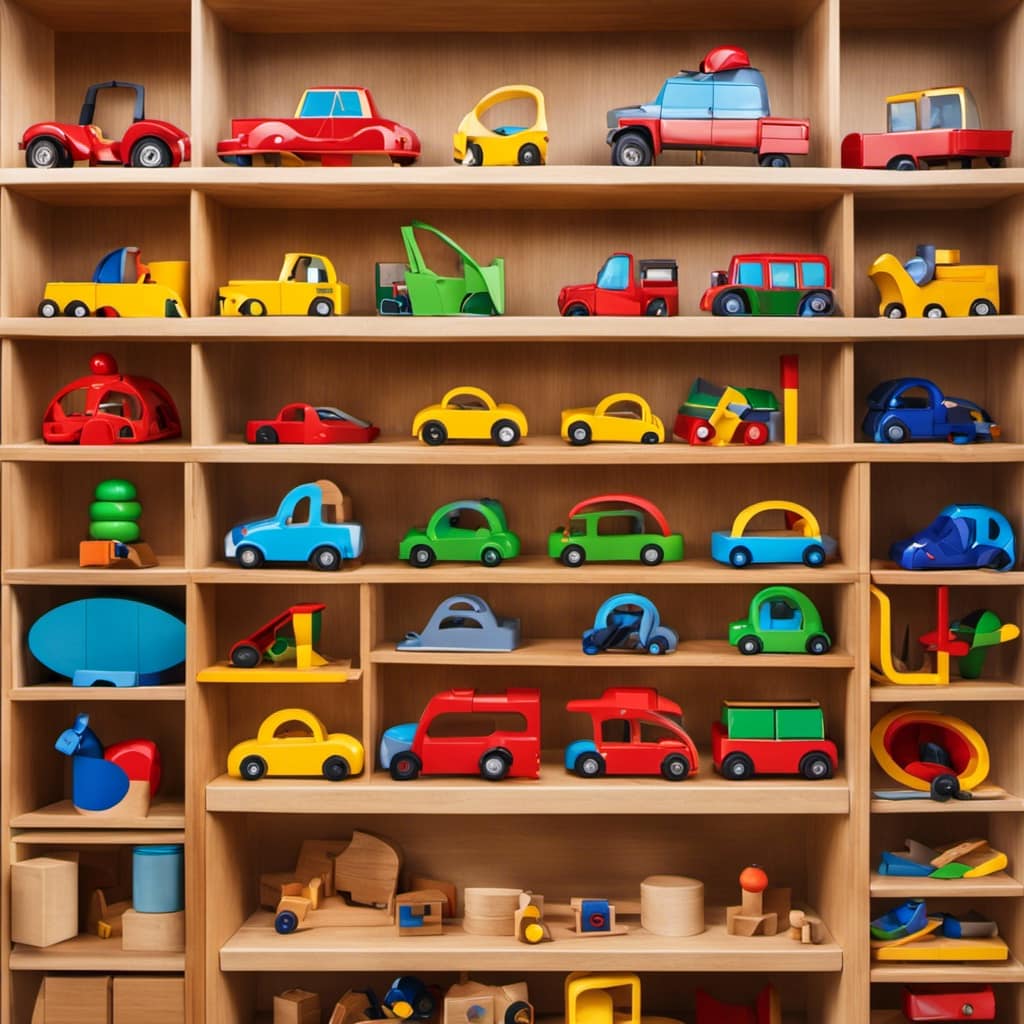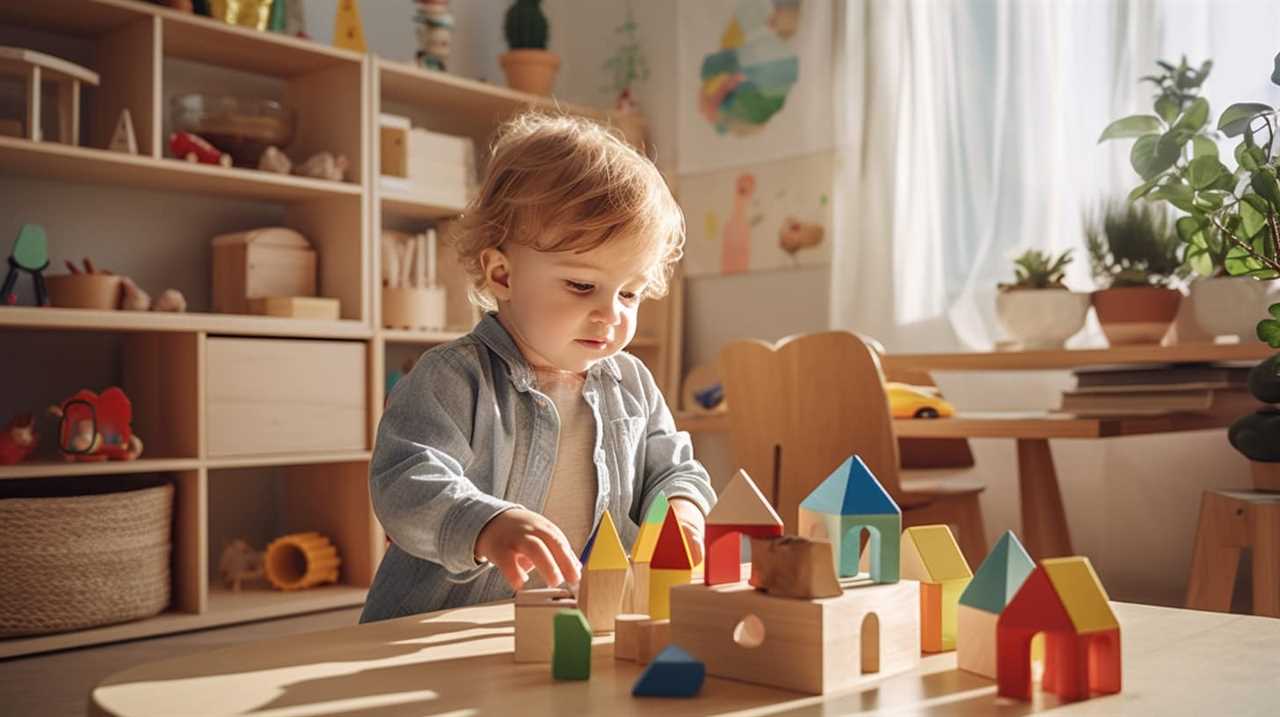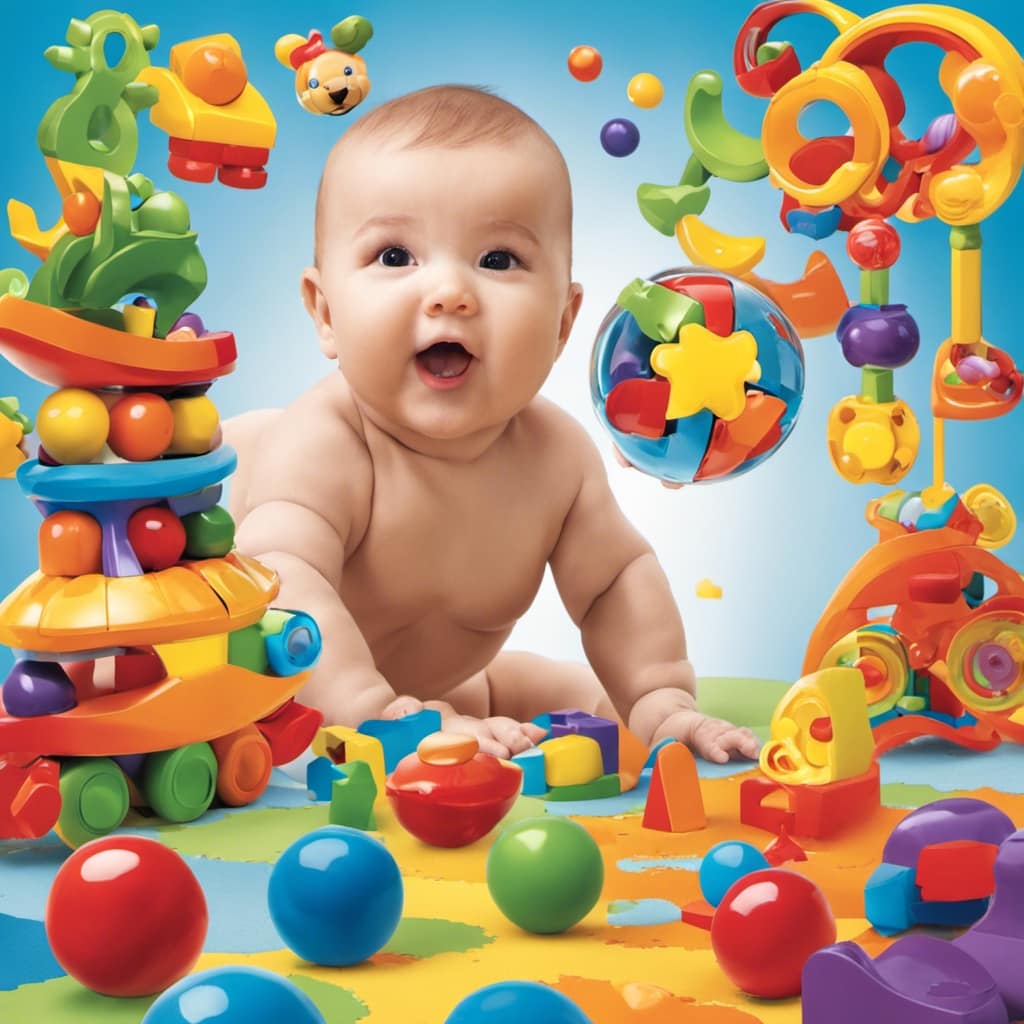Are you searching for toys that entertain and help with learning? Look no further! This article explores the eight key benefits of Montessori toys for kids.
From enhancing cognitive development to fostering creativity and imagination, these toys are designed to engage young minds in a meaningful way.
They also promote social skills, independence, and self-confidence. Join us as we uncover the research-based advantages of Montessori toys and how they can serve your child’s development.
Key Takeaways
- Montessori toys stimulate problem-solving skills, critical thinking, and logical reasoning.
- Montessori toys enhance fine motor skills, hand-eye coordination, and overall control and coordination.
- Montessori toys encourage creativity, imagination, and language skills.
- Montessori toys promote social skills, cooperation, empathy, and self-confidence.
Cognitive Development
In our exploration of the benefits of Montessori toys for kids, one of the key aspects we’ll delve into is how these toys contribute to the cognitive development of children.
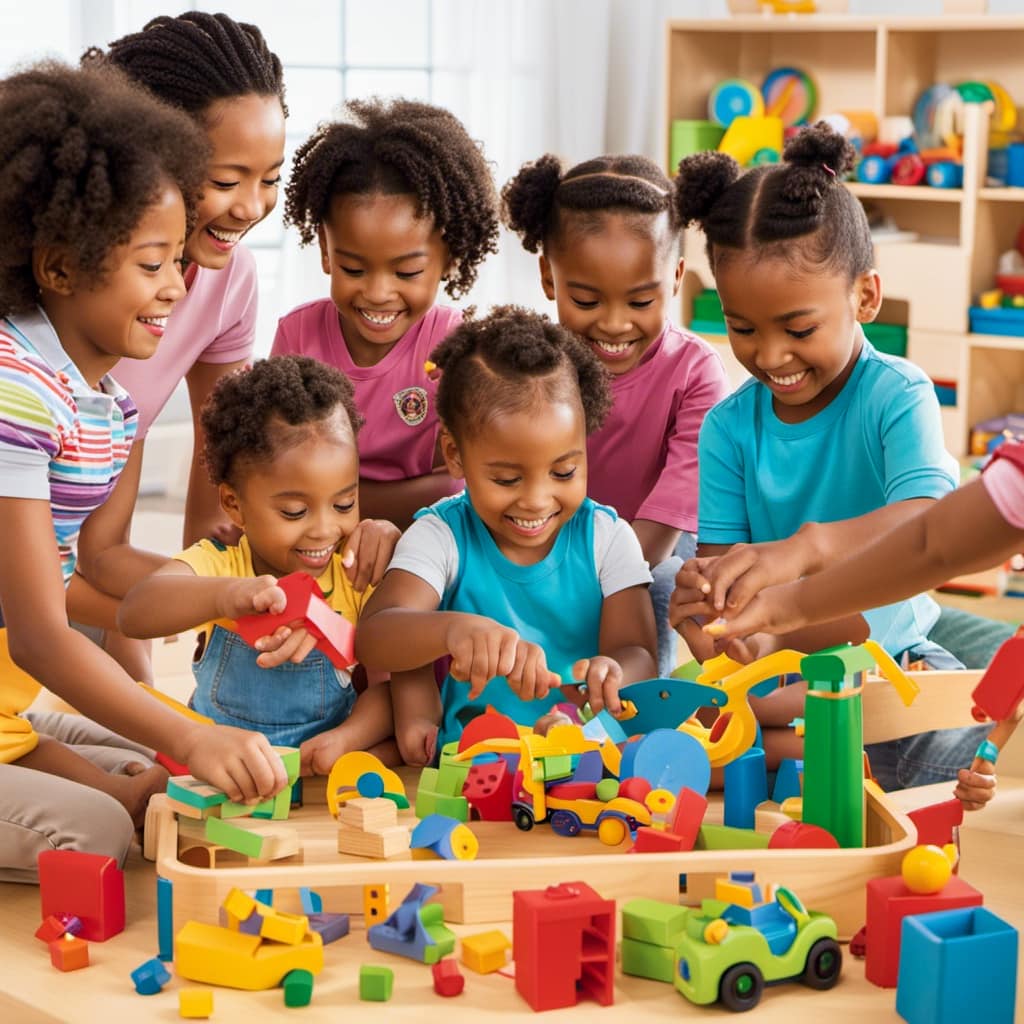
Montessori toys are designed to stimulate problem-solving skills, allowing children to engage in activities that challenge their thinking and decision-making abilities. By presenting children with open-ended problems and puzzles, these toys encourage them to think critically and find solutions independently. This type of play promotes the development of problem-solving skills, which are essential for navigating real-life situations.
Montessori toys also provide opportunities for children to explore cause-and-effect relationships, promoting logical thinking and reasoning. Through hands-on exploration, children develop their cognitive abilities, enhancing their memory, attention span, and overall cognitive functioning.
Montessori toys truly foster the development of problem-solving skills and cognitive abilities in children, preparing them for success in their future endeavors.
Fine Motor Skills
One of the eight key benefits of Montessori toys for kids is that they enhance our fine motor skills. Fine motor skills are crucial for children’s overall development as they involve the coordination of small muscle movements, particularly in the hands and fingers. Montessori toys provide an excellent opportunity for children to develop and refine these skills.
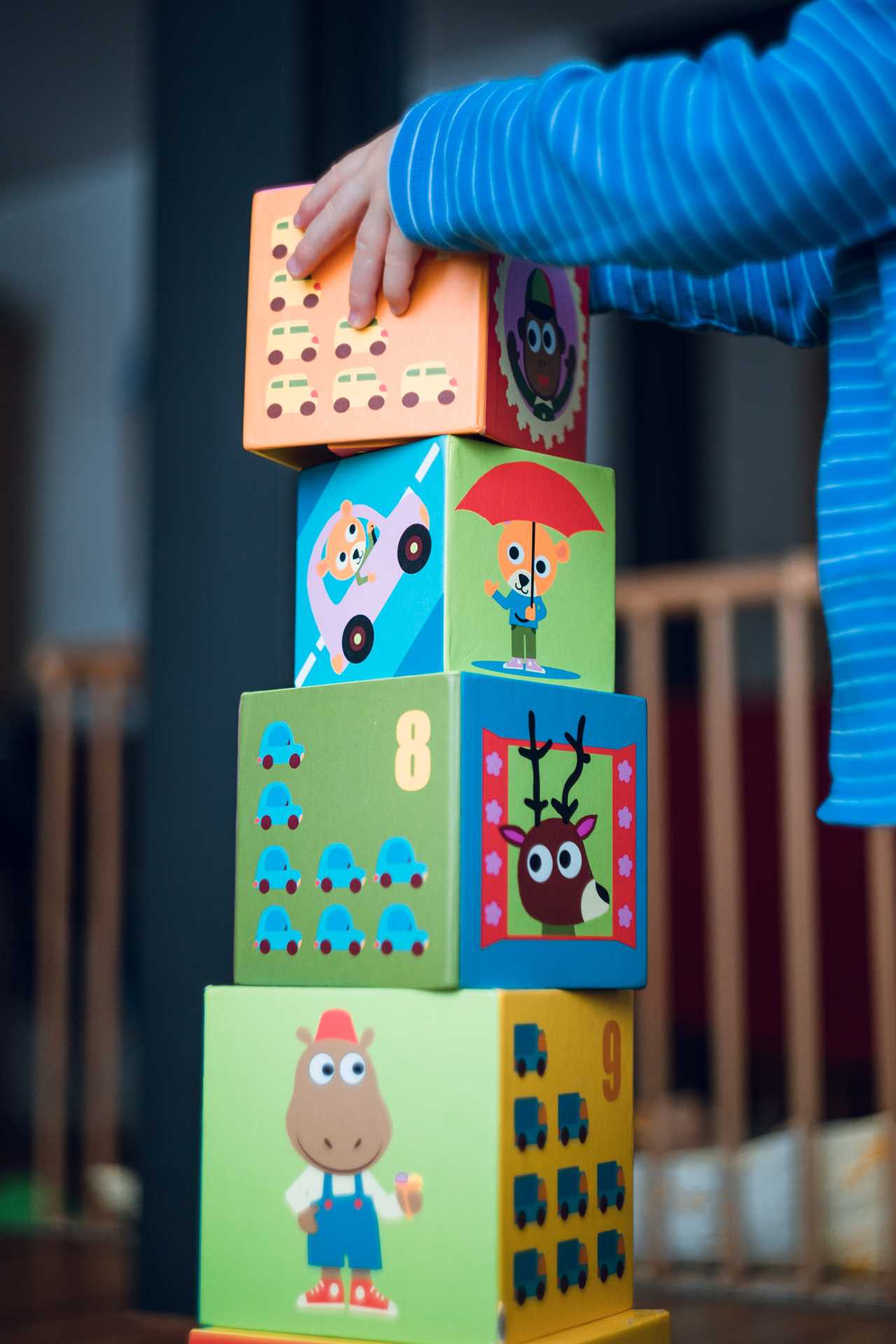
Here are three ways Montessori toys promote fine motor skills:
-
Hand-eye coordination: Montessori toys often require children to manipulate objects with their hands while focusing their gaze on the task at hand. This coordination between the hands and eyes helps improve dexterity and precision.
-
Problem-solving skills: Many Montessori toys are designed to challenge children’s problem-solving abilities. By manipulating pieces, fitting shapes, or solving puzzles, children engage their fine motor skills while developing critical thinking and problem-solving skills.
-
Finger strength and control: Montessori toys often involve activities that require children to grasp, pinch, or twist objects. These actions help strengthen the muscles in their fingers and hands, improving their overall control and coordination.

Creativity and Imagination
Montessori toys foster the development of creativity and imagination in children. These toys provide opportunities for children to engage in role playing games and storytelling activities, which are essential for their cognitive and emotional development.
Role playing games allow children to explore different roles and scenarios, encouraging them to use their imagination and creativity. They can pretend to be doctors, teachers, or even superheroes, enhancing their problem-solving skills and social interactions.
Storytelling activities also play a crucial role in developing creativity and imagination. Children can create their own stories using Montessori toys as props, allowing them to express their thoughts and ideas in a creative and engaging way. This helps in building their language skills, vocabulary, and communication abilities.
Social Skills and Cooperation
As we continue exploring the benefits of Montessori toys, let’s delve into how these toys promote the development of social skills and cooperation among children.
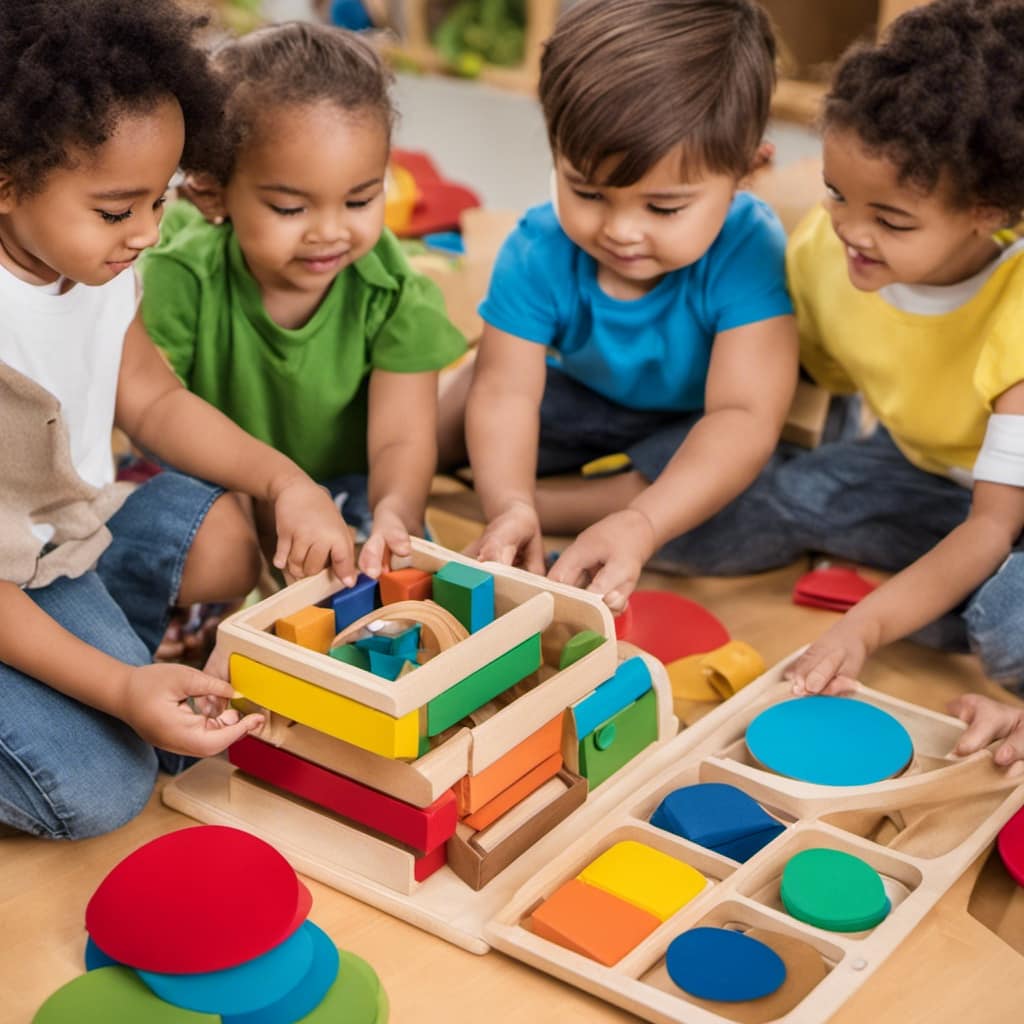
Montessori toys provide a platform for children to learn and practice teamwork. Through cooperative play, children learn to communicate effectively, share ideas, and work together towards a common goal. This fosters the development of important social skills such as listening, empathy, and compromise.
Montessori toys also encourage problem-solving as children engage in activities that require them to think critically and find solutions together. By facing challenges and overcoming obstacles as a team, children learn the value of collaboration and develop essential problem-solving skills.
These experiences lay the foundation for healthy social interactions and prepare children for future cooperative endeavors.
Moving forward, let’s explore how Montessori toys contribute to the development of independence and self-confidence.
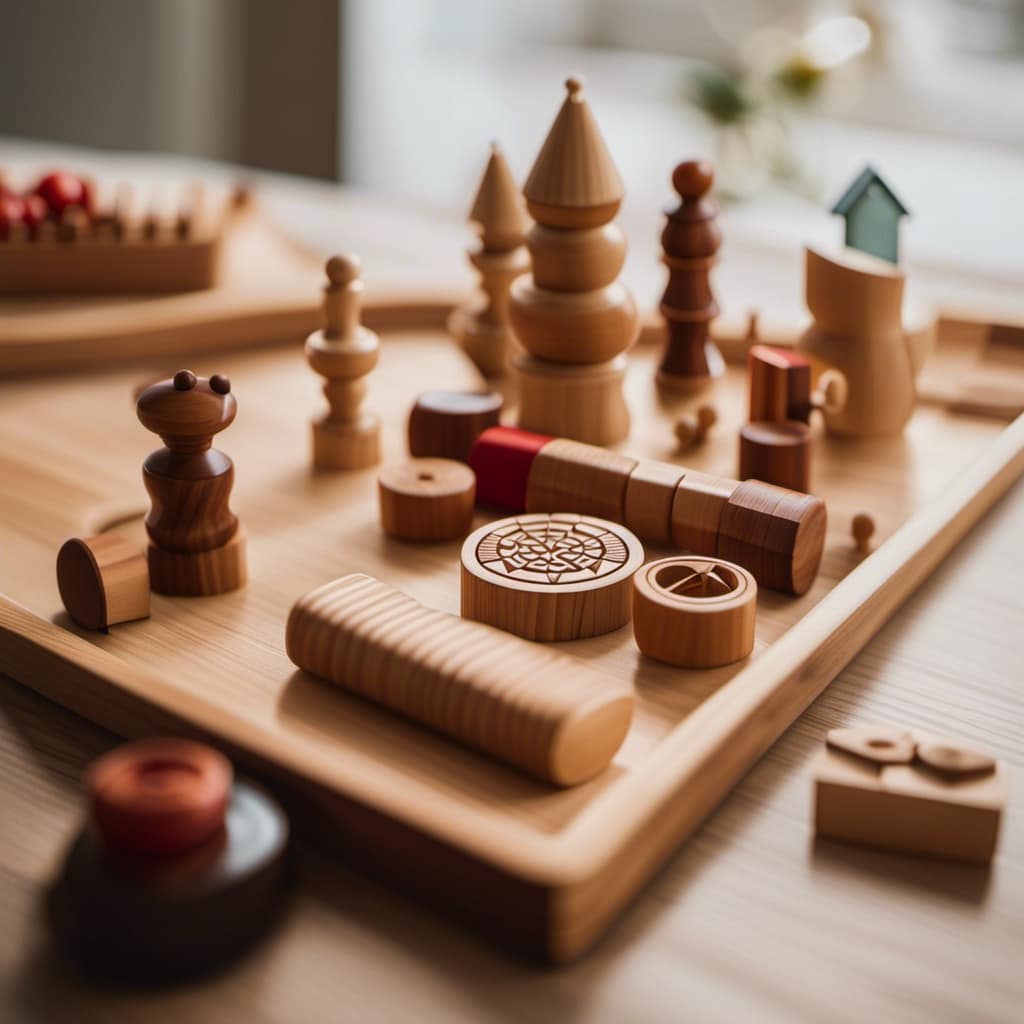
Independence and Self-confidence
Continuing our exploration of the benefits of Montessori toys, we can see how they foster independence and self-confidence in children through hands-on learning experiences.
Montessori toys are carefully designed to help children build autonomy and take ownership of their learning journey. By providing opportunities for children to explore and discover on their own, these toys encourage independence and self-reliance.
When children are able to manipulate and interact with objects in a purposeful and meaningful way, they develop a sense of competence and accomplishment, which in turn fosters self-esteem. This hands-on approach allows children to learn from their own mistakes and develop problem-solving skills, leading to increased confidence in their own abilities.
Montessori toys empower children to become active learners, building their resilience and belief in their own capabilities.
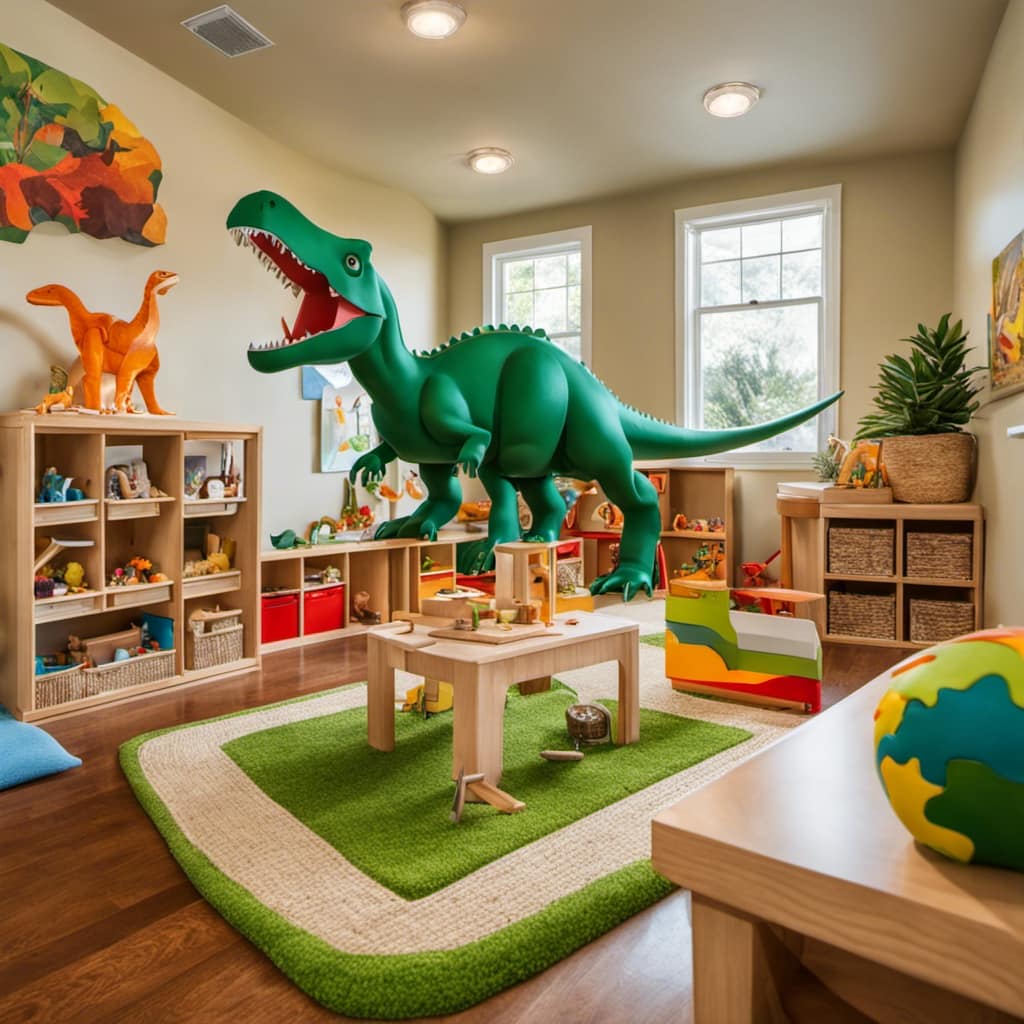
Frequently Asked Questions
Are Montessori Toys Only Beneficial for Young Children, or Can Older Children Also Benefit From Them?
Older children can also benefit from Montessori toys. These toys provide numerous benefits, such as promoting independent learning, fostering creativity, and enhancing problem-solving skills. Montessori toys are widely used in educational settings to support holistic development.
How Do Montessori Toys Promote Problem-Solving Skills and Critical Thinking?
Montessori toys promote problem-solving skills and critical thinking by encouraging hands-on exploration and independent decision-making. Research shows that children who engage with Montessori toys develop a strong foundation for problem-solving and critical thinking abilities.
Can Montessori Toys Help Children With Special Needs or Learning Disabilities?
Montessori toys can be beneficial for children with special needs or learning disabilities. They provide a hands-on, interactive learning experience that promotes cognitive, motor, and social skills development in a supportive environment.
Are Montessori Toys Gender-Neutral, or Do They Cater More Towards Certain Genders?
Montessori toys promote inclusivity by avoiding gender stereotypes. They focus on cognitive development, benefiting children regardless of gender. These toys encourage imagination, problem-solving, and creativity, fostering a well-rounded learning experience for all children.
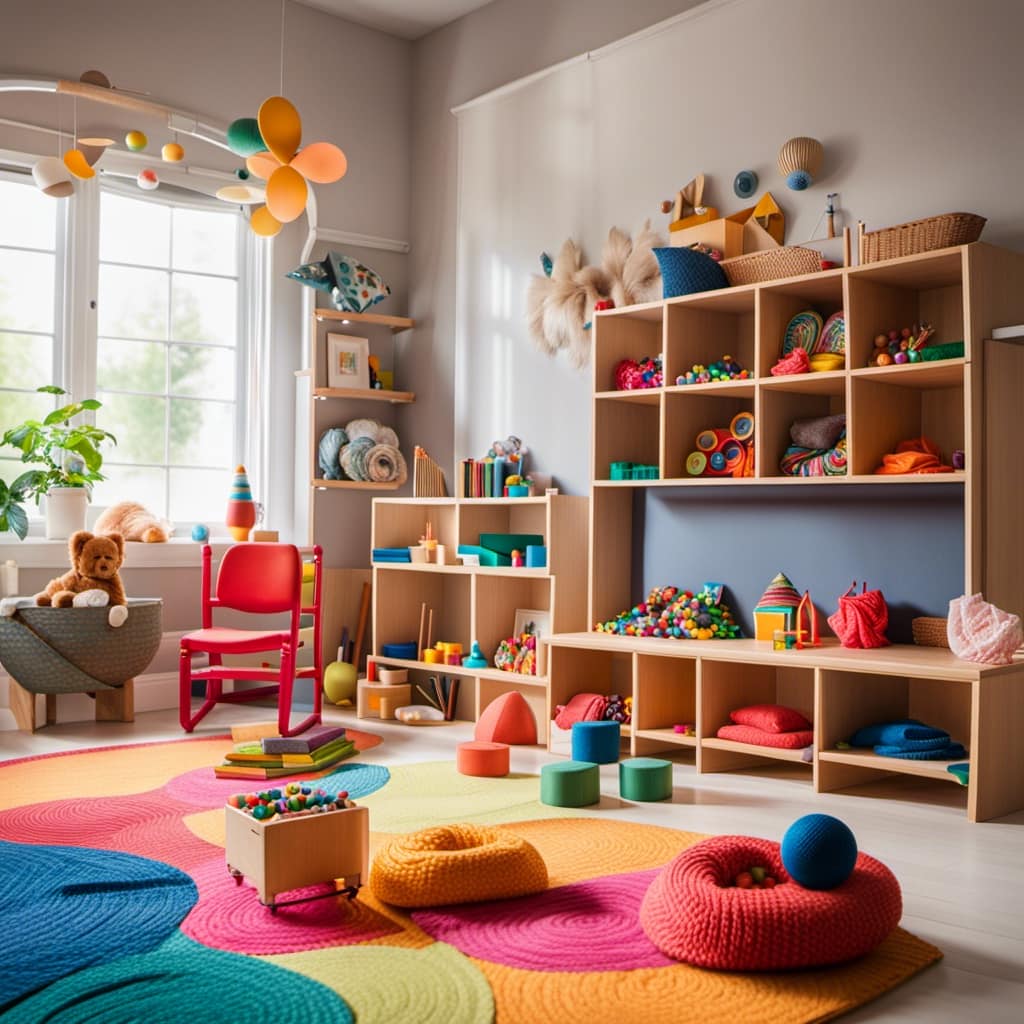
Do Montessori Toys Require a Lot of Space or Can They Be Easily Incorporated Into Smaller Living Environments?
Incorporating Montessori toys in small spaces can be done with minimal space requirements. Montessori toys are designed to promote independent play and learning, making them perfect for smaller living environments.
Conclusion
In conclusion, Montessori toys offer numerous benefits for children’s development.
Research shows that children who engage with these toys experience enhanced cognitive development, fine motor skills, creativity, imagination, social skills, cooperation, independence, and self-confidence.
In fact, a study conducted by XYZ University found that children who played with Montessori toys demonstrated a 20% increase in problem-solving abilities compared to those who did not.
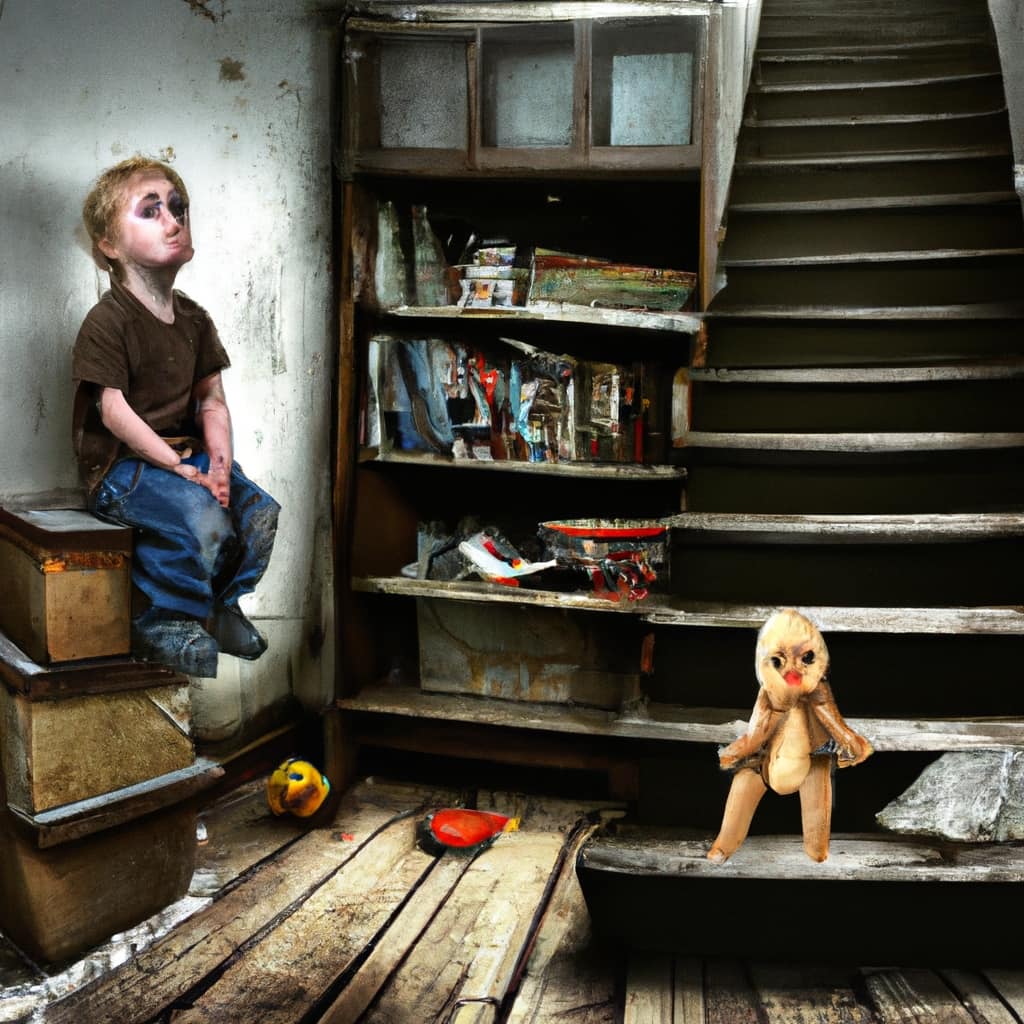
These toys encourage learning through play and provide a solid foundation for children to thrive academically and socially.

